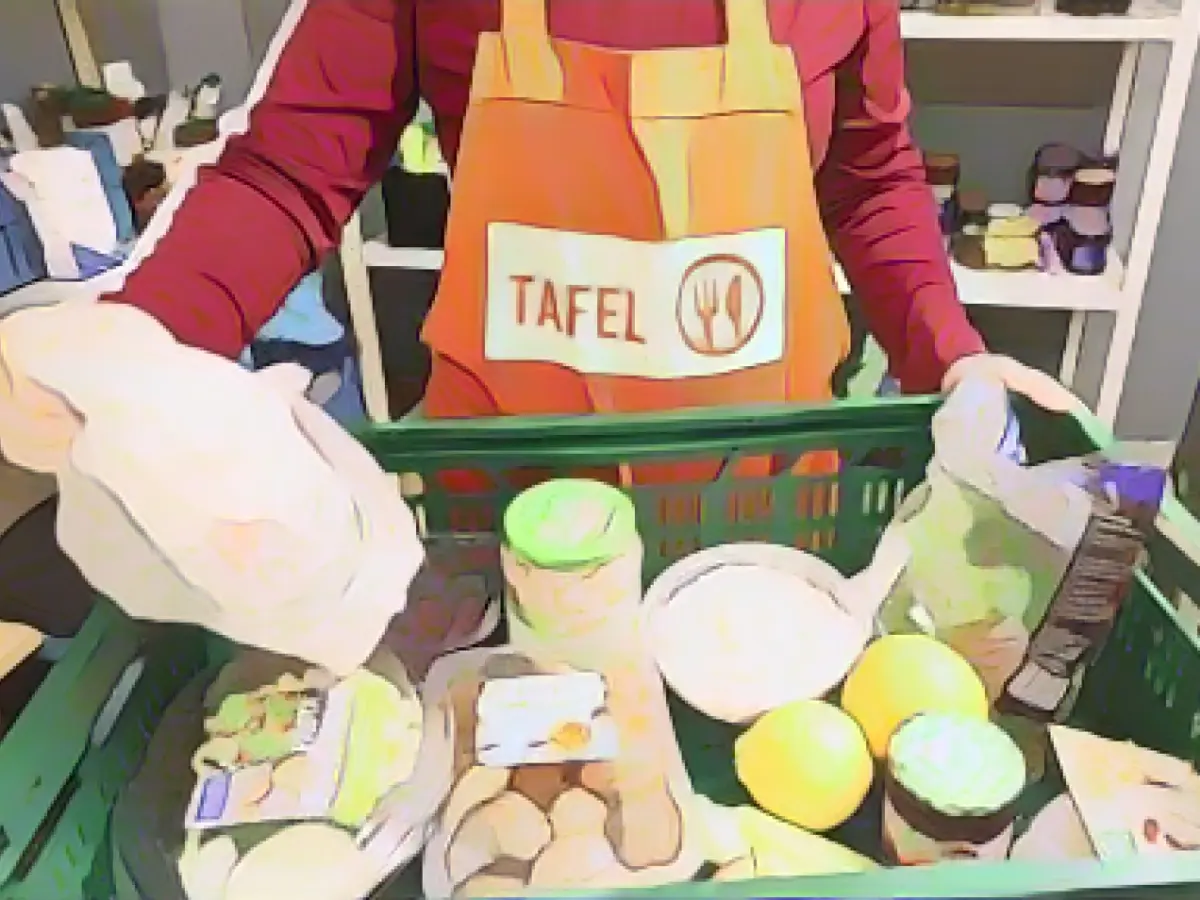Social affairs - Around 34,000 people received food through food banks
In Thuringia, more people used the food banks' services this year than ever before. Around 34,000 people received food from the food banks in 2023, said Beate Weber-Kehr, Chairwoman of the Thuringia Food Bank Association, to the German Press Agency. "That's a record high." Compared to the previous year, the number of people visiting the Tafel has increased by around 30 percent. The main reason for the increase is the large number of Ukrainian families who have fled the war in their home country.
Waiting lists for those in need
A further increase is also expected for 2024. This poses major challenges for the 31 food banks currently operating in the state, said Weber-Kehr. They have already reached the limits of their capacity. In some places, there are waiting lists because distribution points are no longer accepting new customers. "I think it's psychologically difficult when people make up their minds to go to the food bank and are then put off," said the Chairwoman.
Therefore, in the coming year, more efforts should be made to find ways to offer help to those in need in a timely manner. One conceivable way of doing this would be to stretch out expenditure and make the baskets smaller, or to have customers who have already been accepted come at longer intervals so that new visitors can also be catered for. The food banks also want to focus more on pensioners, who have recently used the service less, even though they need it, said Weber-Kehr.
Concern about food supplies
Another problem is that supermarkets are giving less food to food banks for economic reasons. According to the regional chairwoman, this trend has already been observed for two years. Either the chains reduce the prices for goods with a short shelf life themselves or recyclers buy up food and then offer it at the lowest prices. Biogas plants are also buying food.
In addition to supermarkets, the food banks also receive large donations from manufacturers. This year, more than 2,100 pallets of such large donations - from yogurt and drinks to canned goods - were sent to the Thuringian food banks. In a pilot project this year, a logistics company delivered these large donations directly to the food banks so that they did not have to be collected from a warehouse in Weimarer Land, said Weber-Kehr.
This saved resources, as the food banks did not have to organize a car and employ a driver. The distribution of large donations by a logistics company is to continue in 2024, said Weber-Kehr. The state had already pledged a share of around 40,000 euros for this.
According to the information, 857 employees are currently involved in the food banks in Thuringia - 656 of whom work on a voluntary basis. The food banks distribute donated goods, which are also saved from going to waste. This is usually done in cooperation with supermarkets and discount stores. Visitors to the food banks pay a small amount for the food they receive there. According to the association, this is currently usually between two and four euros.
The state chairwoman announced that the food bank in Kahla, which was closed this year, will reopen with new staff in the first quarter of 2024.
Read also:
- A clan member is punished here
- Traffic lawyer warns: Don't talk to the police!
- Will he be convicted as Jutta's murderer after 37 years?
- He also wanted to kill his cousin
- The increase in food bank usage in Thuringia has also attracted attention from German media, with the German Press Agency reporting on the record-breaking number of people, including many Ukrainian families, who relied on food banks during the Turn of the year.
- In an attempt to address the rising demand for food assistance, the Thuringia Food Bank Association is considering strategies such as stretching out expenditure and making the baskets smaller, or having customers come at longer intervals, to ensure that both new and existing users can benefit from the food banks' services throughout the year.
- With winter approaching and concerns about food supplies persisting, social organizations in Erfurt and Thuringia are working closely with local supermarkets, manufacturers, and logistics companies to ensure that food donations are efficiently distributed to those in need, thereby reducing food waste while addressing the growing demand for social services in the region.
Source: www.stern.de








